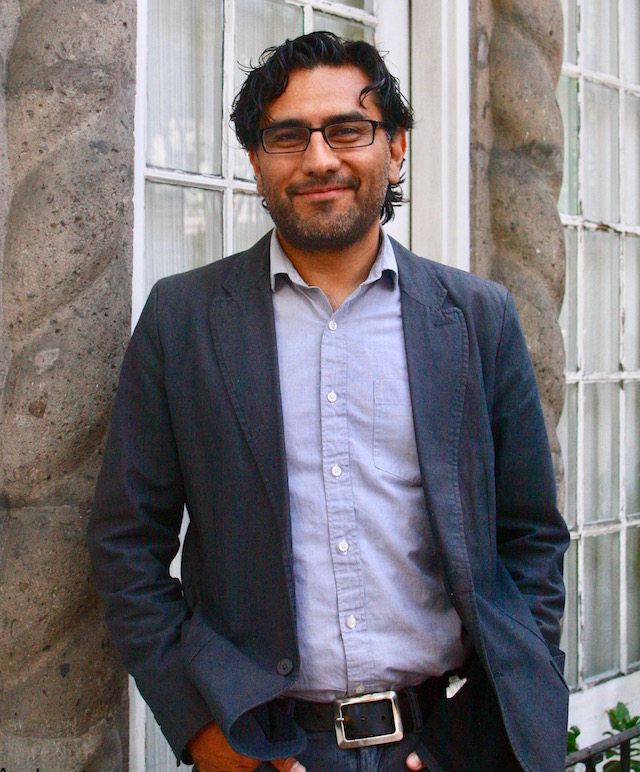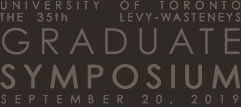DOWNLOAD KEYNOTE ABSTRACTS (PDF 83kb)
The Spanish and Portuguese Graduate Students' Association of the University of Toronto is pleased to have the following distinguished guest speakers at this year's symposium:
 Prof. Oswaldo Zavala (Ciudad Juárez 1975)
Prof. Oswaldo Zavala (Ciudad Juárez 1975)
The College of Staten Island y The Graduate Center de la City University of New York (CUNY)
Es Profesor de literatura y cultura latinoamericana en The College of Staten Island y en The Graduate Center de la City University of New York (CUNY). Es autor de La modernidad insufrible. Roberto Bolaño en los límites de la literatura latinoamericana contemporánea (2015), Volver a la modernidad. Genealogías de la literatura mexicana de fin de siglo (2017) y Los cárteles no existen. Narcotráfico y cultura en México (2018). Ha publicado más de 40 artículos académicos sobre narrativa mexicana contemporánea, la construcción de imaginarios nacionalistas, y la representación y conceptualización de la frontera entre México y Estados Unidos. Su artículo “Imagining the US-Mexico Drug War: The Critical Limits of Narconarratives”, publicado en la revista Comparative Literature, obtuvo en 2016 el Premio Latin American Studies Association (LASA) de la sección México para el mejor ensayo en las humanidades. En 2017 recibió una mención honorífica en el Premio Nacional de Periodismo de México por su ensayo “Nada que ver en la frontera del narco: Los imagentextos de Julián Cardona”, publicado en la revista política Proceso.
Prof. Oswaldo Zavala (Juárez, 1975)
The College of Staten Island and The Graduate Center de la City University of New York (CUNY)
Is a professor of literature and Latin-American culture at The College of Staten Island and in The Graduate Center of the City University of New York (CUNY). He is the author of La modernidad insufrible. Roberto Bolaño en los límites de la literatura latinoamericana contemporánea (The insufferable modernity. Roberto Bolaño in the limits of contemporary Latin-American literature) (2015), Volver a la modernidad. Genealogías de la literatura mexicana de fin de siglo (Going back to modernity. Genealogies of Mexican literature at the end of the century) (2017) and Los cárteles no existen. Narcotráfico y cultura en México (The cartels don’t exist. Narco-traffic and culture in Mexico) (2018). He has published more than 40 academic articles on the contemporary Mexican narrative, the construction of imaginary nationalists, and the representation and conceptualization of the border between Mexico and the United States. His article “Imagining the US-Mexico Drug War: The Critical Limits of Narconarratives,”(imaginando la mexicana-americana narcoguerra: las limites criticas de narconarrativas) published in the review Comparative Literature, won the Latin American Studies Association (LASA) prize in 2016 in the section regarding Mexico for best essay in humanities. In 2017, he received an honourable mention in the National Prize of Journalism of Mexico for his essay “Nada que ver en la frontera del narco: Los imagentextos de Julián Cardona,” (Nothing to see in the narco-border: the image-texts of Julián Cardona) published in the political review Proceso.
 Prof. Armin Schwegler (Suiza, 1955)
Prof. Armin Schwegler (Suiza, 1955)
University of California, Irvine
El Profesor Schwegler se especializa en el estudio lingüístico, social, cultural y de contexto histórico de las lenguas española y portuguesa, así como de las lenguas creoles (en especial el Palenquero). En los últimos años, su investigación lo ha llevado a explorar en profundidad los modos en los que la genética poblacional (ADN) puede servir para reconstruir el extendido origen africano de la población Latinoamericana (producto del comercio de esclavos).
Nacido y criado en Suecia, el Profesor Schwegler es un Faculty Member en la University of California (Irvine) desde el año 1987. Entusiasta viajero, ha desarrollado trabajo de campo en los rincones más remotos y fascinantes de América Latina (Brasil, Colombia, Cuba, Ecuador, etc.) Ha dado la vuelta al mundo enseñando con el curso Semester at Sea y estudió una docena de lenguas. Dos veces Fullbright scholar, ha escrito y editado varios libros y publicado más de 70 artículos de investigación. Co-edita desde hace años el Journal of Pidgin and Creole Languages y cofundó la RILI (Revista Internacional de Lingüística Ibérica). Su mayor pasión continúa siendo la enseñanza, que ha ejercido en numerosas universidades alrededor del mundo (más recientemente en la University of Vienna, Austria).
Prof. Armin Schwegler (Switzerland, 1955)
University of California, Irvine
Prof. Schwegler’s research emphasizes the study of the Spanish, Portuguese, and creole languages (especially Palenquero) from a linguistic perspective, while also exploring language in its social, cultural and historical contexts. During the past few years, this has led him to explore in depth how population genetics (DNA) can assist us in reconstructing Latin America's extensive African origins (slave trade).
Born and raised in Switzerland, Prof. Schwegler has been a faculty member at the University of California (Irvine) since 1987. An enthusiastic world traveler, he has carried out extensive fieldwork in remote and fascinating corners of Latin America (Brazil, Colombia, Cuba, Ecuador, etc.). He has circumnavigated the world while teaching with Semester at Sea, and studied a dozen languages. A Fulbright scholar on two occasions, he has written and/or edited many books and authored over 70 research articles. He has been the long-time co-editor of the Journal of Pidgin and Creole Languages, and was co-founder of RILI (Revista Internacional de Lingüística Ibérica). His greatest passion continues to be teaching, which he has carried out at numerous universities across the globe (most recently at the University of Vienna, Austria).


